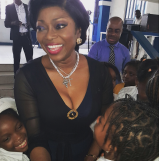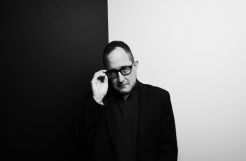
In the world of Christian music, the names don't come much bigger than Steven Curtis Chapman. He's sold more than 10 million records, won five Grammys, had multiple hit singles, authored childrens' books and appeared on TV across the world.
Born in Kentucky in the early '60s, Chapman began releasing music in 1987. Since then he's put out more than 20 albums and as well as writing his own tracks has also brought attention to other artists by covering their work.
Married to Mary Beth, they have championed adoption.
In 2008 tragedy struck the family as the couple's adopted daughter Maria Sue was accidentally run over in the family's driveway by her brother's car.
All of this and much more makes it into Chapman's newly-released autobiography Between Heaven and the Real World. Christian Today talked with him about his life, music and the story behind it all.
Why did you decide to write this book now?
For 30 years there've been many conversations with publishers and invitations to tell my story. It's been quite a journey. I always answered that question with, 'Some day I really want to do that.' About three years ago a publisher asked me that question and I found myself thinking, 'You know, I think it's time.'
I was coming up on 30 years since the release of my first album, it was kind of a milestone. That's a lot of years and there's a lot of stories! I knew it was going to be a lot of work to get all of the stories in.
My wife wrote a book of her journey where she talked very honestly and openly about her whole life of walking alongside me through the many years of my career. I've had so many people tell me how much that meant to them and impacted them because of her honesty. It's something a lot of people would say they don't find in very many Christian books that they pick up. We feel the need to make it sound more together or paint it in a better light than it really is. Hearing people respond to how encouraged they were by her honesty encouraged me to tell my story and to share in an honest way.
There's a lot of personal stuff in the book. Did you talk it through first with your family and friends?
My son Caleb, who's the other songwriter in the family, is a lover of words and a great writer. He sat with me and said, 'Dad, if you're going to do this, promise me you really will be honest and be committed to sharing the story as it is.'
Then the word I felt committed to was 'honour'. I felt that was something that was really important – that I would honour the people in the story – my parents, my wife, that they would feel honoured by the way that I represented them.

It was important for my mom to read the parts about her life that were sharing some stuff that hadn't be shared before. It was important my family read all the parts that involved them – particularly when I started talking about the loss of our daughter. We all sat together one night. It was really important to let them all read that chapter and say, 'Guys, I'll take anything out that feel too hard or doesn't feel right because I really want to walk that line of telling the truth and honouring the pain and grief.' That was an important part of the process.
I'm so thankful God didn't edit out so much of scripture that I fear we might have been tempted to do. In modern day Christendom and the publishing world we maybe would have wanted to edit out some of David's story and just put in the part about killing Goliath because we all love that part. But when David is saying, 'How long, oh Lord, are you going to forget me?' Or when Paul talks about God's strength made perfect in weakness – those are the scriptures that encouraged me more than any. I hope in the honesty others will be encouraged by that as well.
The loss of your daughter seems to be the heart of this story.
It's what I call the ultimate unfixable – the loss of our daughter. What I've found in telling my story is the places that I'd want to avoid at all costs, the places I would have scripted very differently in my life – which have actually been the places where I have actually encountered God in profound ways and the deepest ways.
What I would go back and undo in any way if I could was the loss of our daughter. But I have had to acknowledge and see how God has revealed himself and we've experienced such profound ways even through the valley of the shadow of death. Having to hold onto the promise that the story's not over yet is the key. That's the thing that continues to give us hope to walk through it, not run from it and to keep pushing back at the darkness. We really believe if God's word is true, the story is very far from over and he is going to make all things new and work all these things together for our good and his glory. That day is coming and that's how we can keep showing up in a world full on unfixable things.
How does all of this play back into your music?
Writing this book I've realised how important remembering is to our faith. I was a profound thing for me to go back and listen to my music, singing those songs from 25 years ago but singing them in light of what I had no clue of at the time I wrote the songs. It's not only still true, it's more true now, having walked through what we've walked through.
I've passed through even deeper valleys than I could have imagined at that time. Music is part of what kept me hopeful.
You're not retiring, are you?
I feel like there's much still ahead, there's no reason to believe that God is not going to continue. It doesn't have to mean album sales or awards. I'm free from thinking I've got to perform for a record label. I just have a sense that there is a new season and I'm praying about what that will be.
Between Heaven and the Real World is out now.
















